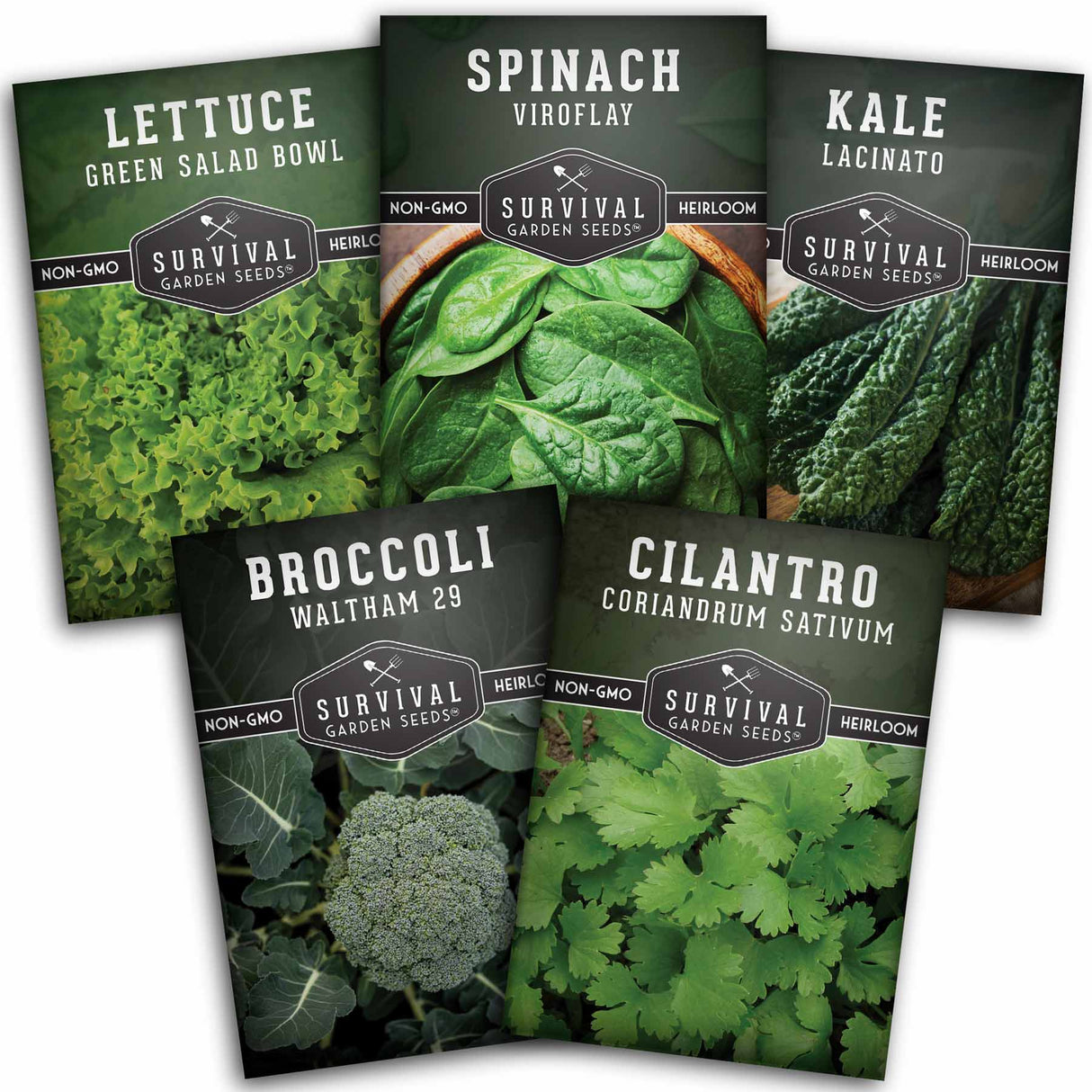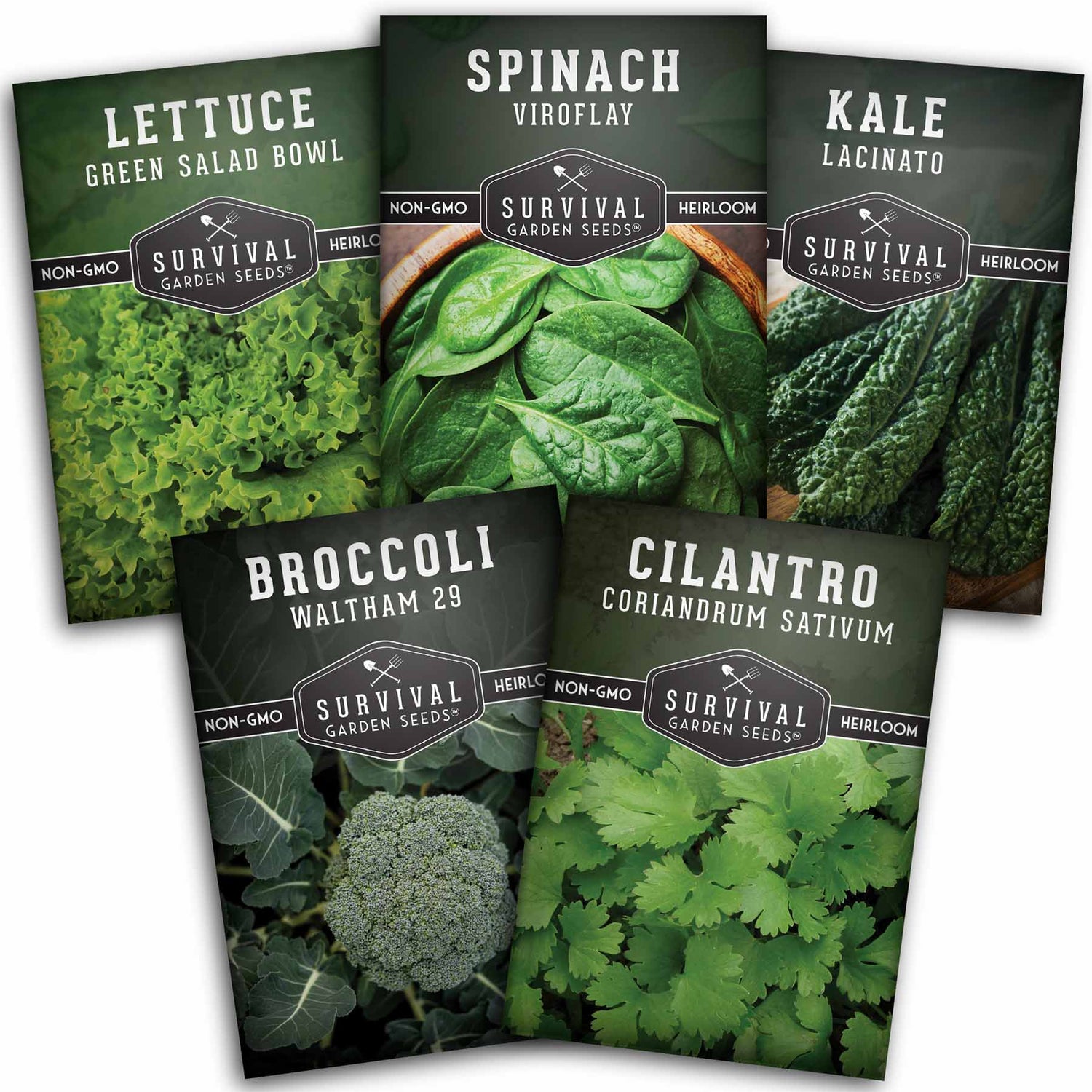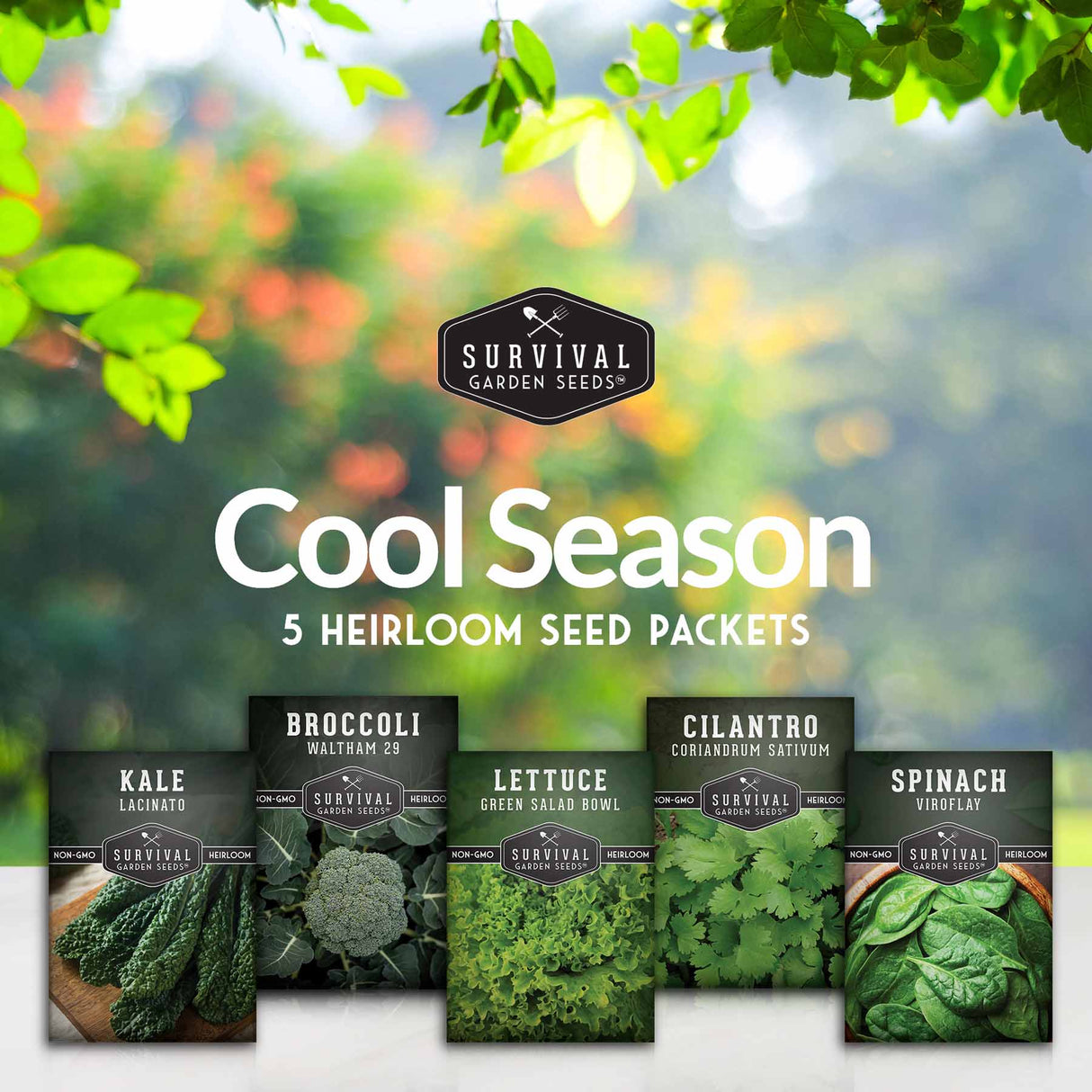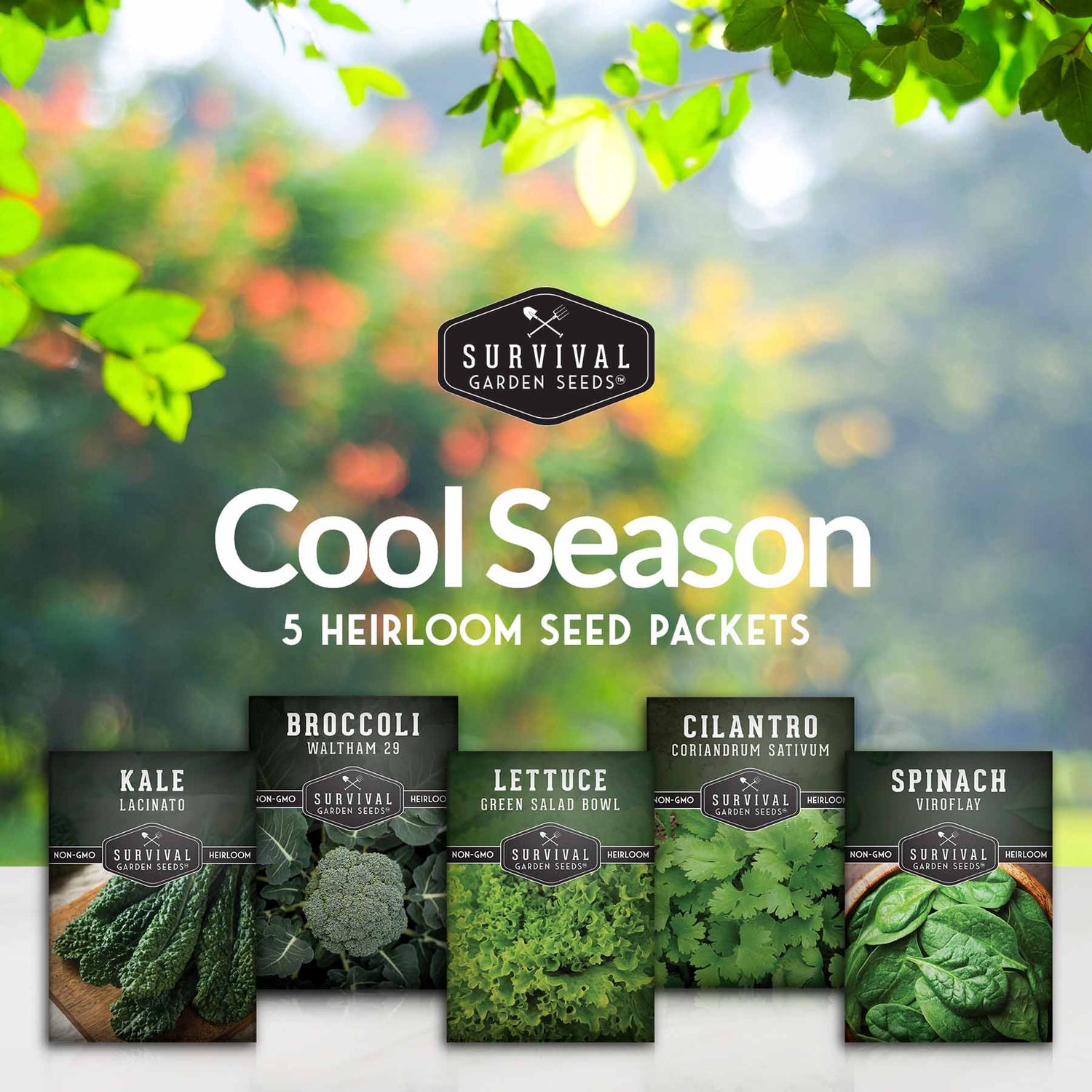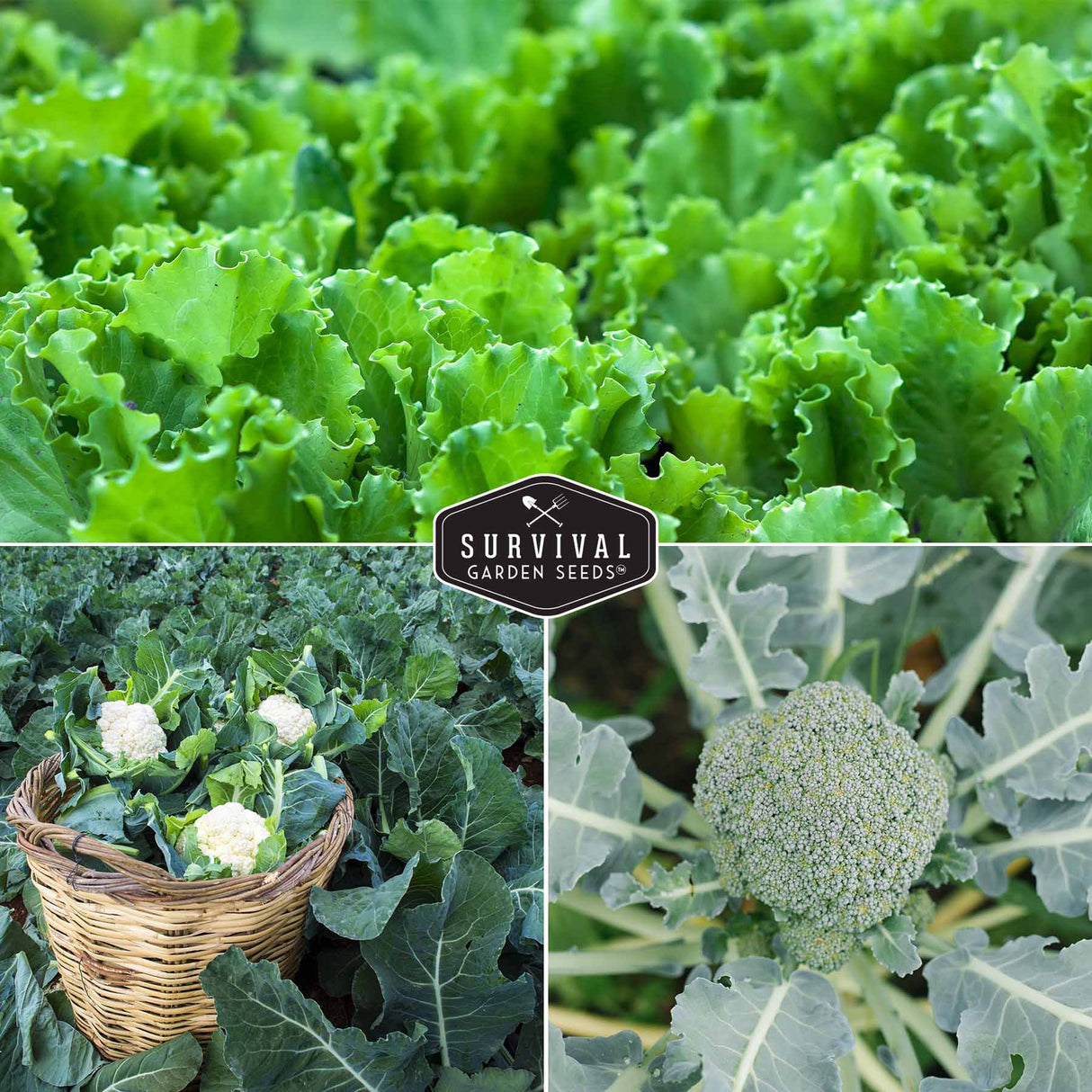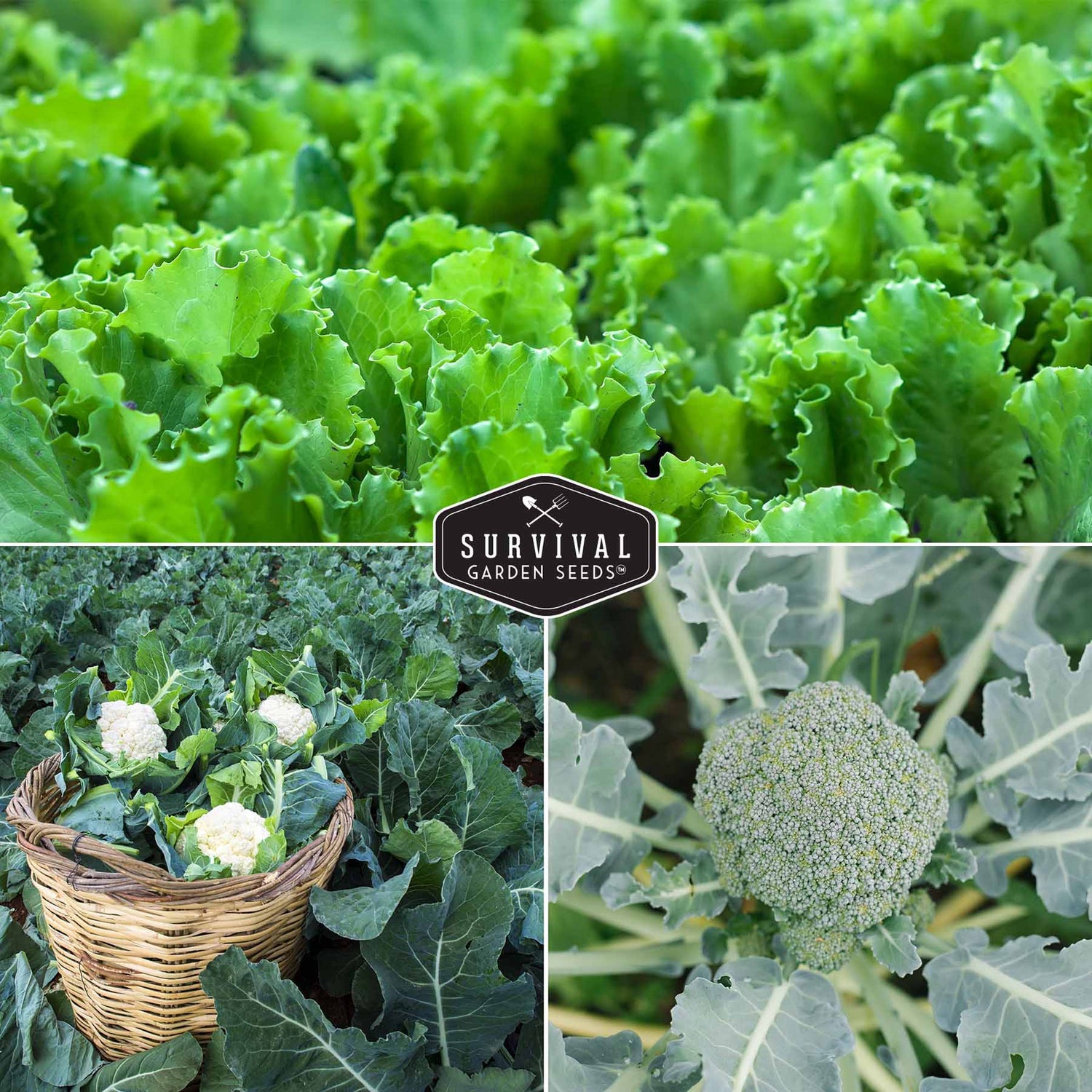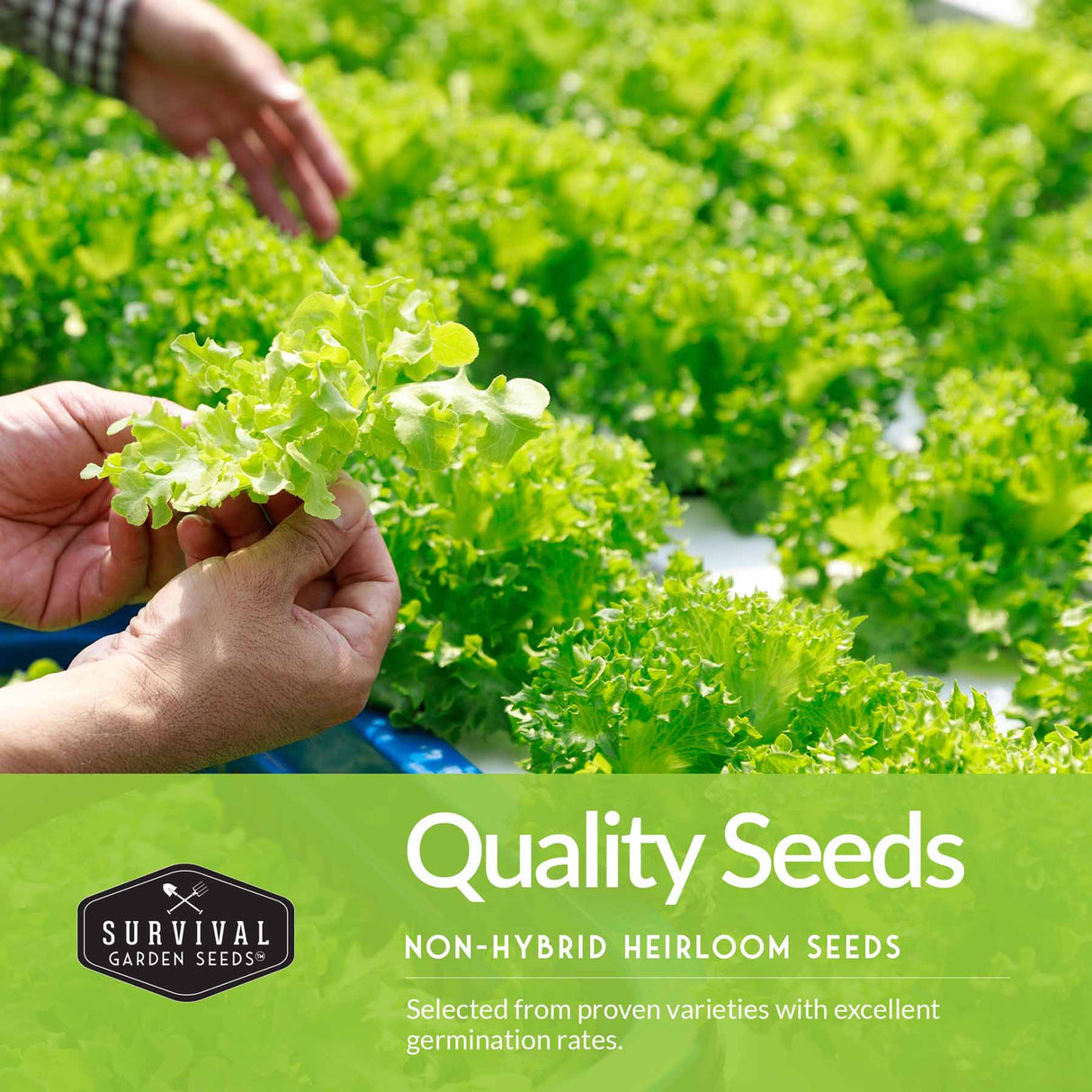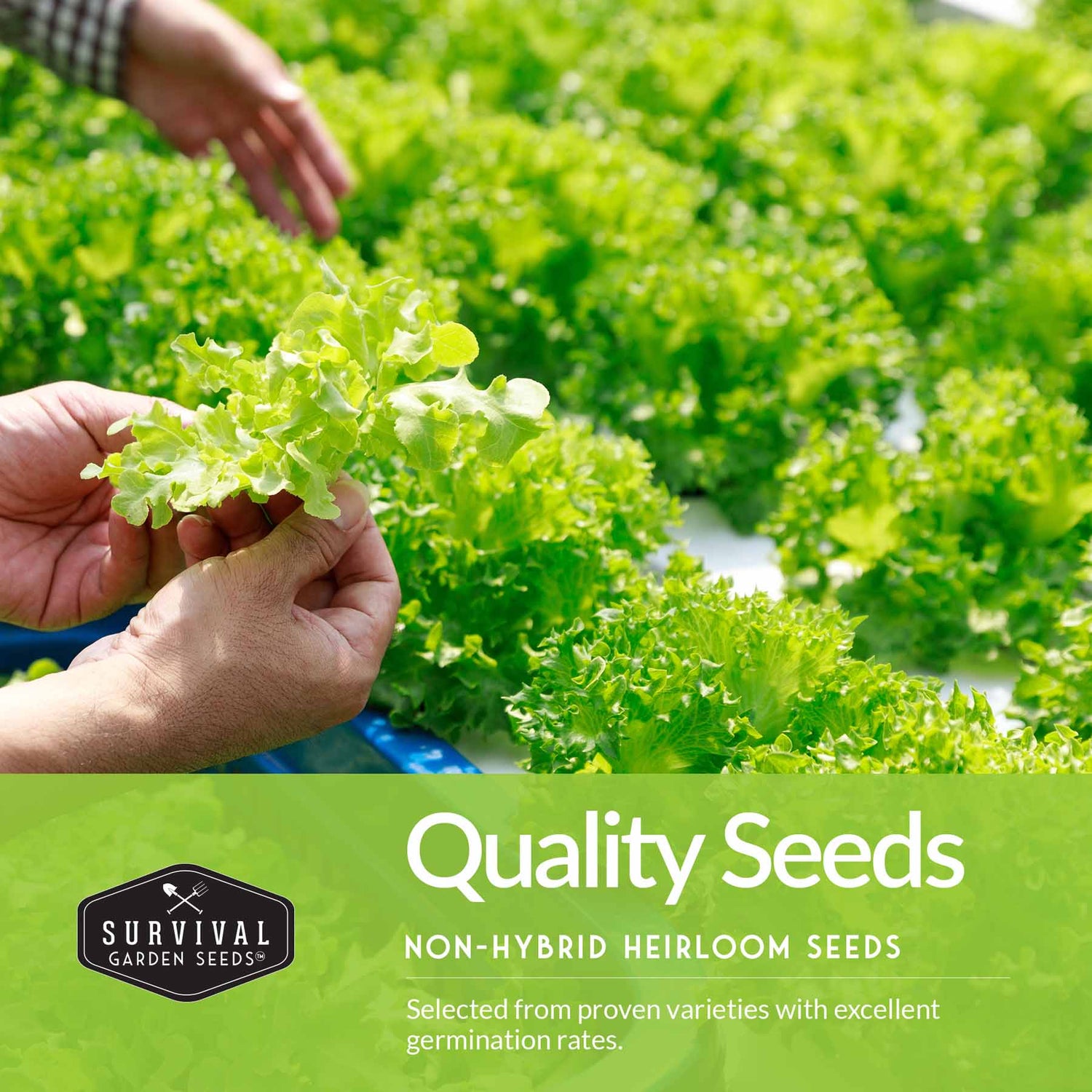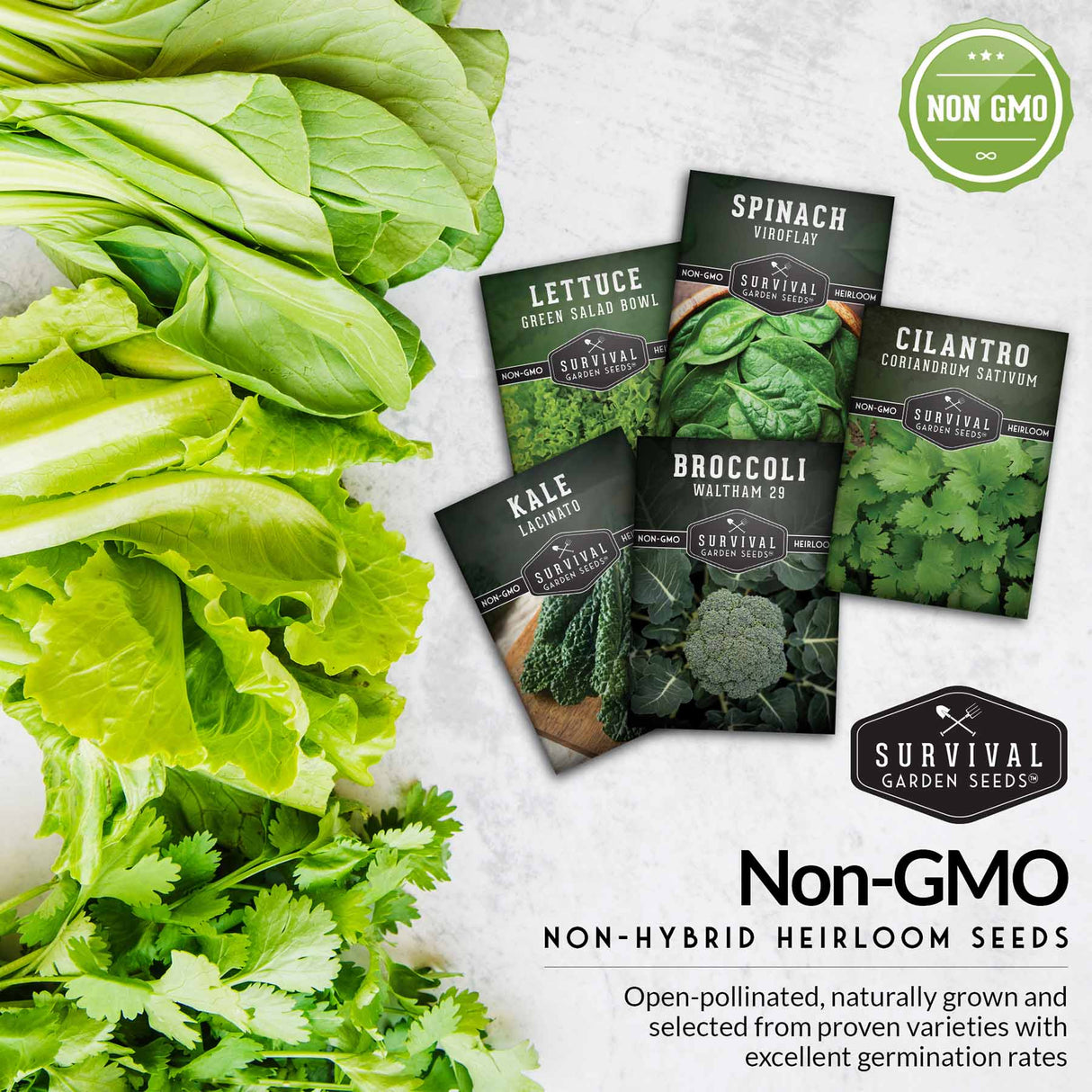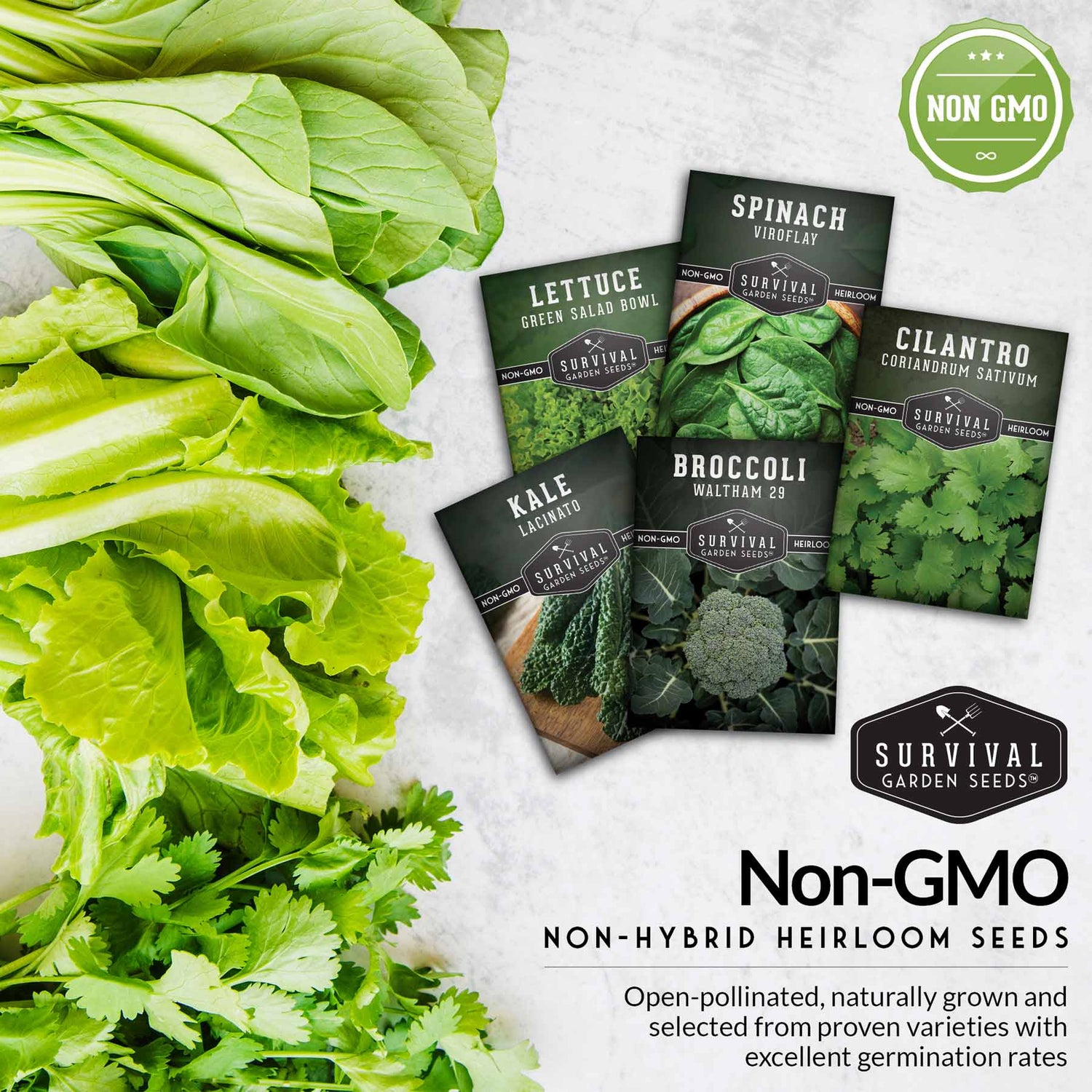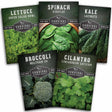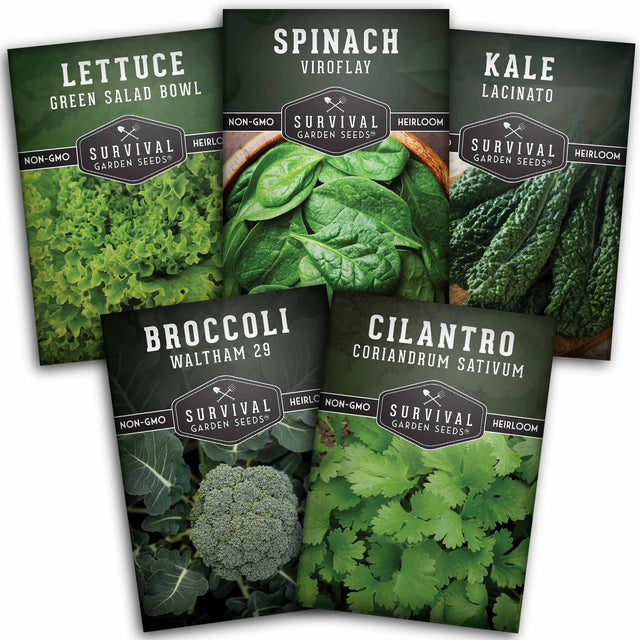Cool Weather Vegetable Seed Collection - Spinach, Kale, Cilantro, Broccoli, and Leaf Lettuce
Cool Weather Vegetable Seed Collection - Spinach, Kale, Cilantro, Broccoli, and Leaf Lettuce is backordered and will ship as soon as it is back in stock.
Couldn't load pickup availability
- Cool Weather Planting - Keep your family fed during the cold season with this assorted mix of seeds. Includes well-producing winter varieties: Viroflay Spinach, Cilantro, Lacinato Kale, Waltham 29 Broccoli, and Green Salad Bowl Lettuce. In the summer months, some of these plants can be grown indoors in containers for year-round crops.
- Healthy Leafy Greens - These nutritional powerhouses can provide you with much needed vitamins and minerals even during lean times. Having plenty of green leafies on hand is an excellent survival strategy. Broccoli, kale, and spinach can be frozen or canned. Cilantro's seeds are known as coriander and can be dried as an extremely healthy and tasty spice that is an essential ingredient in curry and other dishes.
Green Salad Bowl Lettuce is a leaf lettuce with wavy green leaves that withstand summer's heat. Perfect for a warm weather lettuce for your home vegetable garden.
Lacinato Kale, a.k.a. Tuscan Kale or Dinosaur Kale, is a kid's favorite kale. That's great, because kale is a nutritional superfood. They'll love growing this kale in your home vegetable garden and eventually eating it, too!
Viroflay Spinach is a reliable spinach that grows to an impressive size. Feed your family with fresh spinach straight from your home vegetable garden.
Waltham 29 Broccoli is a blue-green broccoli known for its exceptional taste and High Yields. Its 4-8 inch heads have long stalks and medium to large beads. Plant produces side shoots after the initial harvest, extending the growing season. Waltham 29 performs well in cooler weather, making it an ideal early spring or autumn crop.
Cilantro is a perfect herb seed for your garden. Performs best in cooler weather, as hot weather can cause it to become feathery and tasteless. In the summer months, plant some containers indoors for year-round fresh flavor in your salsa and stir-fries.
Heirloom Garden Seeds
All of our seeds are open-pollinated, non-GMO, heirloom varieties with tested germination rates
Payment & Security
Payment methods
Your payment information is processed securely. We do not store credit card details nor have access to your credit card information.
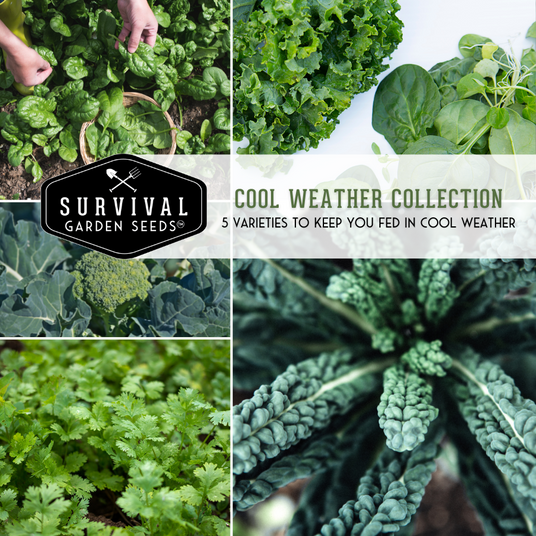
Extend Your Growing Season
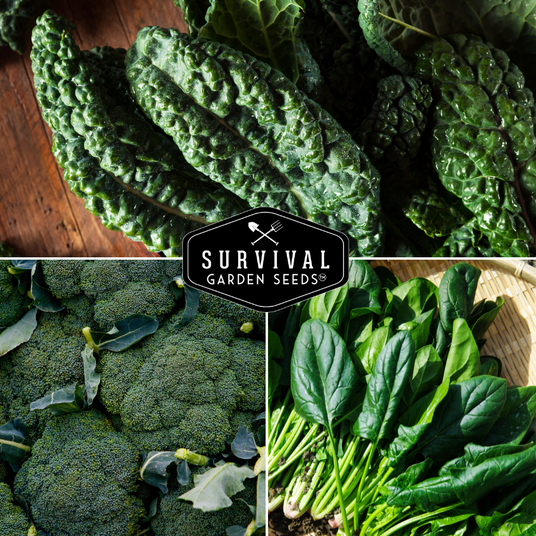
Many Ways to Grow and Use
Self-Reliance For The Future
- Sustainable Living - Gardening is an essential foundation of a more self-sufficient lifestyle. Home-grown fruits, vegetables, and herbs are generally more flavorful and nutritious than store-bought. Adding flowering plants into your gardening benefits the local ecosystem and improves garden health.
- Easy to Grow - Seeds are packed in a beautiful paper packet with instructions for successful growing and germination in your own home garden. Each package also has instructions for saving seeds after harvest. Getting started is simple for both beginner and experienced gardeners.
- Quality Seeds - Plant now or store for future growing seasons. These seeds will remain viable for years if stored in a cool dry location. Our safe, non-hybrid non-GMO heirloom seeds are always open-pollinated, naturally grown, untreated, and selected to ensure the best germination rates
Frequently Asked Questions
What are heirloom seeds?
What are heirloom seeds?
Heirloom seeds are the types of seeds your grandparents grew. These varieties have been passed down from generation to generation. They’re old reliable open-pollinated varieties that aren’t typically grown commercially. Instead, they have a rich history that predates modern breeding techniques.
You can learn more about open-pollinated, heirloom, and non-GMO seeds in our Survival Garden Training blog.
Where are Survival Garden Seeds sourced?
Where are Survival Garden Seeds sourced?
The majority of our seeds are sourced in the United States, with a few exceptions when the seed is difficult to source domestically. Whenever we do have to source outside of the US, we ensure our seeds are safe to grow, non-GMO varieties that meet our standards for germination and reliability.
Are your seeds treated?
Are your seeds treated?
No, we do not pre-treat our farmer seeds. All of our garden seeds for sale are untreated, open-pollinated, non-GMO, and heirloom varieties. They are kept in temperature-controlled cooler storage until they are packed and shipped to keep them pest and disease-free.
In what zones can I grow your seeds?
In what zones can I grow your seeds?
The seeds in our collections are specifically chosen from varieties that can be successfully grown from Zone 3 to Zone 10 USDA Hardiness Zones. However, individual varieties have specific needs to thrive in different environments. Each seed pack has optimal temperatures for germination and instructions on seed starting. Consult local frost dates to plan your garden and get the most out of your seeds.
What is the shelf life of these gardening seeds?
What is the shelf life of these gardening seeds?
Our seeds will generally last for 3-10 years if they are appropriately stored in a cool, dry place. However, we encourage you to grow your survival seeds within a year or two of purchase. This yields the best germination rates possible and also gives you more experience growing survival food now. At the end of the growing season, follow the instructions on the back of each packet for saving seeds for future gardens. These new seeds for survival will be more adapted to thrive in the growing conditions where you are.

